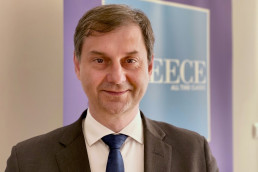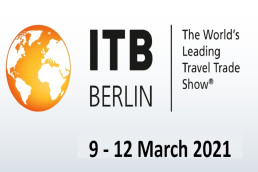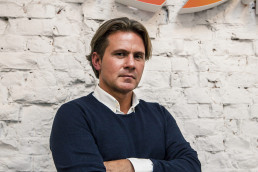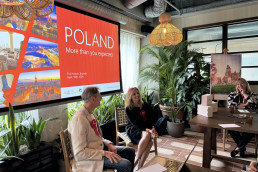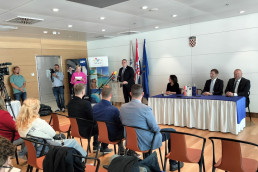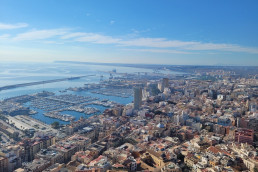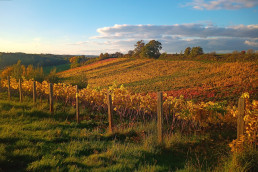PTO – contractor of projects worth PLN 3.8 billion. These are funds for “tourism reform”
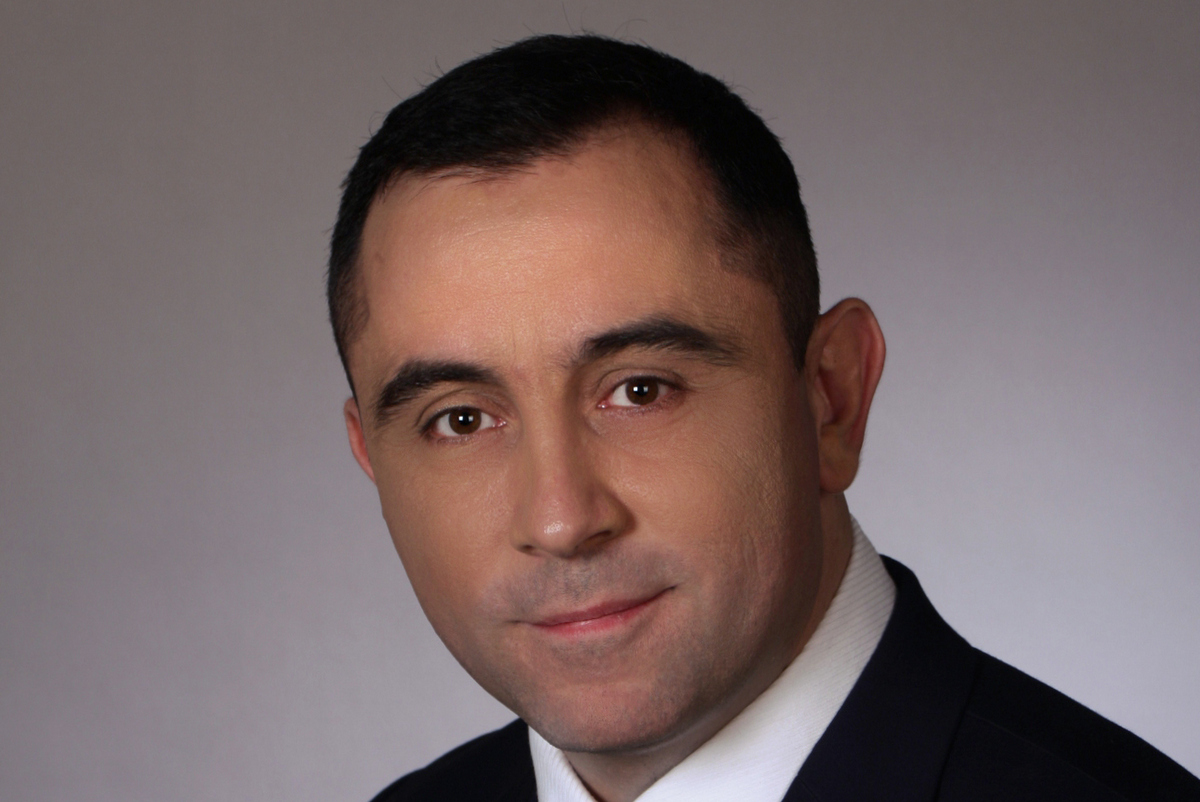
Paradoxically, it was thanks to the lockdown that he very quickly got to know the tourism industry and its problems. Former director of the tourism department, and today the president of the Polish Tourist Organization, Rafał Szlachta takes over the reins of the organization when it becomes the holder of nearly PLN 4 billion from EU funds. In an interview with the editors of the WaszaTurystyka.pl portal, he talks about how he assesses his work so far and about a huge injection of money for the development of tourism.
Adam Gąsior: Why the decision to leave the position in the Department of Tourism and run for the president of the PTO?
Rafał Szlachta: While working in the ministry, I cooperated with the Polish Tourist Organization and saw the potential of this organization. However, I believe that it has not been fully used. So I decided as a former athlete that I would take up this challenge. The more so because a preliminary agreement has already been concluded, according to which the tasks of the Polish Tourist Organization will be – as was the case with Euro 2012 – the promotion of Poland during the 2023 Olympic Games.
AG: What is the untapped potential of the Polish Tourist Organization? In the tourism industry, opinions about it vary, sometimes you can hear voices that it is an extinct organization…
RS: I wouldn’t be that critical, but I did hear such opinions as well. PTO is an organization deeply inscribed in the awareness of the industry, it has been cooperating with it for years. You can always do many tasks better, cooperate more horizontally, respond to current needs. I am going to continue what is good, but seeing the great potential of the organization, I focus on development. I don’t say that after joining the organization I wasn’t surprised by some solutions, or rather the lack of them. I am talking first of all about modern technological solutions. For example, I was surprised by the fact that there is no way to fully implement remote work at PTO, because there are no business laptops for employees. I would like an organization with such human resources to react more dynamically. We operate on a daily basis, not only on the domestic market, but also abroad, and this shows that we should be open, especially in these difficult times. I know how to change it, because my business and international experience built over the years allows me to introduce these changes. However, for this to happen, we must all implement a business model of organization management.
AG: How would you sum up your achievements as department director?
RS: This very difficult period allowed me to really get to know the industry and its problems. Get to know the inside out of the entire ministerial mechanics, because the work was dynamic and there was a lot of it. In a “normal” time, I would certainly learn a lot less. And so, in a very short period of time, by necessity, I worked all ministerial, inter-ministerial, governmental and parliamentary paths. I believe that it will profit with appropriate experience future in my work.
Paradoxically, it was thanks to the lockdown that I was able to quickly get to know the entire industry and start working closely with it. Like it or not, I had to delve into its problems right away, into the specifics of all its segments. I have learned that tourism is a complex mechanism and each part requires different care and help.
AG: But could you have done something better?
RS: It is said that there is always something to be done better. With the athlete’s hand on my heart, I can say that I put commitment into my duties, I devoted all my free time to work. I must admit that perhaps good relations with Prime Minister Emilewicz, Minister Gut-Mostowy and contacts in other ministries allowed us to achieve things that might not have been possible originally. I certainly couldn’t do more. I believe that in all this, for tourism it was a salvation that it passed from the Ministry of Sport and Tourism to the Ministry of Development, which during the crisis was responsible for the aid laws for the economy. This allowed us to fight for entries for tourism at the highest level.
AG: Why is there so little interest in the fate of tourism companies in close government circles? This sector is bleeding out, and the help the companies got is inadequate to their needs. Is the low awareness of the rulers due to insufficient lobbying on the part of the tourism industry or from the fact that it has been “stuck” to sport for so long?
RS: Tourism has finally entered the minds of decision makers in government circles and has been noticed, but the beginnings were difficult. It was difficult to break through and explain the nuances of the diversity of this industry. It was only due to the coronavirus that this topic began to function in the minds of the rulers. Before that, no one knew how many complex mechanisms operated in tourism and how many segments were dependent on it. The fact that we have managed to explain this in the last few months made us get approval for help. Previously, politicians associated tourism only with holidays by the Baltic Sea or in the mountains. From this point of view only, the industry was doing great. I remember many conversations during which we tried to explain otherwise. Just because we managed to explain to the Ministry of Finance that the full hotels in the mountains and other resorts do not prove that tourism has revived, we managed to implement the Tourist Refund project. Decision-makers, looking at the pictures presented in the mass media, believed that tourism no longer needed help.
Our message finally got through to the politicians. However, it happened when there was a shortage of funds for assistance. So we have developed mechanisms and solutions, but we lack resources. Additionally, the so-called the second wave of the epidemic causes losses also in other sectors of the economy. The needs are big, and point-based help will be prepared. Proposals for further solutions will be presented by the Ministry of Development, the work is now in progress.
Marzena Markowska: Is it still about anti-crisis shields or other ways of helping?
RS: I don’t want to go into details just yet. It is the ministry that has to announce it, but on a general level I can reveal that it is, for example, about extending the operation of the Tourist Return Fund to another segment of tourism (apart from tour-operators). We are also preparing tax-related provisions, as well as postponing the Polish Development Fund repayment by another year.
MM: Why does this Tourist Return Fund has to be so complicated to use?
RS: As a former businessman, a person who has always run a business, I perfectly understand these allegations. If I were still looking from the entrepreneur’s point of view, I would probably have had similar feelings. However, when you are responsible for spending huge amounts of money and signing up to the laws, you have to take responsibility for how the money is used. Withdrawals must be subjected to verification methods. After all, we remember how easily PDF funds flowed onto the market in a completely uncontrolled manner. They were given to companies that should not have received these funds. Hence the need to obtain the maximum amount of data allowing to determine whether public funds are going where they should be.
Some provisions, such as interest-bearing loans, were introduced due to the restrictions of EU law. In the current state of the law – Polish and EU – no more could be done to facilitate these procedures.
AG: What about entrepreneurs with huge financial obligations, e.g. in the coach industry? Will they receive help?
RS: Some cases are beyond the scope of the Department of Tourism. I must admit that during the crisis, we have probably had the most problems in the history of the department. Perhaps due to our effectiveness, we also received requests from other sectors.
Bus transport is beyond the legislative powers of the Ministry of Development, lobbying activities must be directed to the Ministry of Infrastructure. They need to fight for the KPO program.
AG: Why do all the negotiations with the industry, looking for solutions, introducing new instruments take so long? The situation in travel has been known since March – was it not possible to introduce appropriate support solutions?
RS: At first, we were all surprised by what was happening and it was not entirely clear how this crisis would develop. However, we should remember that the first version of the “shield” gives touroperators a 180-day deferral to return the funds to customers, and also exemptions from audiovisual fees for hotels, lower rents in shopping malls fot travel aagents. We introduced further changes and solutions on an ongoing basis, as the situation evolved.
In the summer, a period of slight “frostbite” allowed us to catch our breath for a while to work on what to do next with the said “180 days”. The European Commission did not agree to such a solution and we knew that this deadline could not be extended. Then we started talks with the industry and came to an agreement that we would set up a Tourist Return Fund. There was also the problem of the lack of an exemption from social security fees and no additional wage subsidies for tour operators. The Ministry of Finance did not agree to introduce them, because it decided that the PKD already allocates a large amount of aid in the amount of PLN 300 million for this. Only now has it been possible to make up for it.
MM: The Tourist Return Fund has not yet paid out any funds. What’s taking so long?
RS: The ICT tool was ready to withdraw funds. However, the process of signing the agreement was delayed due to the fact that it had to be ratified by the Chief Prosecutor’s Office. It was signed last Friday, a transfer from the budget to the fund wa already made, so this week payouts have started.
MM: Why didn’t the tourism industry know about it? This information is crucial, because clients are on the verge of patience, and some of them have already exceeded it a long time ago… They don’t want to wait anymore, they want their money back.
RS: Unfortunately, as the government tries to unify the information policy, the Government Information Center has to approve all communication, which has temporarily paralyzed the information system. The idea was to coordinate the information policy so that each minister did not express a different opinion, for example on tourist trips. This delayed the forwarding of some of the messages.
I think that the contractor should also inform the industry, but this is beyond the competence of the tourism department.
AG: Let’s go back to the subject of PTO – at our spring edition of Tourism Promotion Forum you announced that the new act regulating its activities would be ready by the end of the year …
RS: We started working on the law during the summer. We wanted to start public consultations on this matter, but we also had to deal with the act on Tourist Return Fund. We were hoping to discuss this with the industry in the fall. But the second wave of the pandemic came and aid to the industry had to be dealt with. We returned to the current matters, the works on the act had to be postponed. We all know that change is badly needed.
Due to the months of good cooperation at the Ministry of Development, I hope that it will be possible to do so quickly. I will be the first person to move this on. However, the Ministry of Development is the legislator and so the legislative process and the shape of the project depend on it.
AG: PTO is to be the administrator of almost PLN 4 billion from EU funds. Please tell me more about these projects.
RS: We’ve all heard about it in the media: Poland received funds from the EU for the so-called National Reconstruction Program (KPO). Project fiches were initially collected and divided into individual segments of the economy. In the field of tourism, it was known that the Ministry of Development would take care of collecting the cards. In tourism there are also other projects from other ministries and local governments from all over the country. They fall under the common “umbrella” of the Ministry, but the it cannot perform these activities itself, because it is prohibited by law. The program operator will therefore be the only non-ministerial organization dealing with tourism in Poland, i.e. the PTO. The total amount of these projects will amount to approx. PLN 3.8 billion. The group for territorial cohesion in the KPO – this is where the resources for tourism are. The Ministry of Agricultural Development will also add a program for rural tourism.
AG: What will the money be used for?
RS: For 25 projects in various fields of tourism. We collect ideas for tourism reform in post-pandemic times. The European Commission will assess how credible the idea is and what effects this reform will have, ie whether the proposed actions are properly prepared. We put emphasis on rural tourism, but also on modernization and computerization: creating tourist routes, social tourism, adapting tourism for the disabled.
A separate project created by the ministry is to support medical and wellness tourism – it is about PLN 1.5 billion for the modernization and modernization of Polish spas. The monety will be also spent to promote Poland as a country that is popular due to health tourism.
AG: How will the spending of these funds be verified?
RS: The European Commission is currently evaluating the whole idea of the reform. First of all, the project is to be assessed in terms of effectiveness and expected results. We want to change tourism in a post-pandemic situation, redirect it to new tracks and disperse it. We don’t want to make more tourist go to popular places, but the opposite.
AG: There are assumptions that this is a classic scam, as we know from experience that money was leaking from such programs. Such money has not yet been available in tourist structures. What transparency mechanisms will guarantee that these funds will be used for the benefit of tourism and in a correct way?
RS: The method of spending funds is not a one-man decision of the president of the PTO, but will be supervised by the Ministry of Development, which is to accept the presented projects. The Polish Tourist Organization is their contractor and is expected to handle them efficiently. Fortunately, PTO has experts on EU funds, and more will be needed.
MM: Who will be the beneficiaries of these programs? Will it be only associations or also private companies?
RS: Ultimately, the aid may reach entrepreneurs and organizations. As the program develops, the European Commission will indicate the conditions and principles that should be followed in their allocation.
AG: When will the European Commission accept this project?
RS: The assessment is being made now, it can be expected in November / December.
AG: And will there be a need for an act of law by then, or can the Polish Tourist Organization be working on this project in the current legal conditions?
RS: We would like to introduce the PTO bill as soon as possible, but if it fails in due time, a transitional option is foreseen. We have prepared the relevant provisions of the amendment that will enable to start the activities related to the KPO. These will be temporary solutions, adopted until the new act is written.
AG: The PTO under your leadership will surely be a completely different organization than before. It looks like maybe a new Poish Agency of Tourism Development? What other actions will it be taking, we talked about the Games …
RS: Yes, some of the tasks will be related to the 2023 European Games, which will take place in Krakow. The Polish Tourist Organization will be responsible for the tourist and economic promotion of Poland during the Games, building the image of Poland abroad and we also hope that there will be additional funds for this.
AG: Where from?
RS: Work has begun on the special act, which, as in the case of EURO 2012, will set up the acquisition of funds and the method of their distribution. A government plenipotentiary for the 2023 Games has already been appointed, Jacek Sasin, Deputy Prime Minister for State Assets.
AG: PTO will jump from the budget level of PLN 50 million to PLN 3.8 billion. How will it change this organization? Will you need additional staff?
RS: I feel very responsible for that budget. I am aware of its enormity and how much it is are needed in tourism. Yes, it will certainly be necessary to expand the PTO staff as part of new tasks. But a new mobilization in the team is also needed. Employees were pushed from the so-called “walk” to “run” mode and I can already see the first who are starting to take faster steps. I am not a revolutionist to replace the entire staff, because they have a lot of knowledge. But I will be looking for specialists and people with energy to act. People who can deal with European funds, as well as the promotional activities themselves, will certainly be useful. Current crew will probably be able to handle the latter.
MM: How will the PTO budget itself change, will the cost of its activities increase?
RS: We started to count it, we already discussed this with the parliamentary subcommittee on tourism. For now, we have the green light to increase these funds, but this can only be done as part of an amendment to the state budget. We don’t know yet how much the PTO budget will increase specifically. This has to be carefully calculated, basing on past expenses. We need a few days for this.
AG: What about the branch of the Polish Tourist Organization in Wieliczka, responsible for the Tourist Voucher? What if the program ends?
RS: Certainly all administrative matters related to the voucher have to be completed, but for now it is difficult to predict what about the continuation of the program. It is said in the backstage that a voucher is needed, but on the other hand, we know that the second lockdown is hitting many industries hard. Resources will be needed for the entire economy. I hope that if the voucher cannot be extended in its current form, then maybe in a limited version. There is an idea for the voucher to stay longer, we prepare variants depending on budget possibilities.
MM: Will there be a reorganization in the Polish Tourist Organization? A large part of the PTO’s tasks will be related to servicing the new EU project, but as I understand it, it will remain the agency responsible for the tourism promotion of Poland. How do you intend to divide these responsibilities, will there be a third vice president position?
RS: When we will know for sure that we have managed to obtain these funds, we will have to create a separate department to manage them, together with the person responsible for it. However, only when there is a prospect of receiving EU funds, will there be talk of the third vice president.
It will be necessary to strengthen the division responsible for foreign promotion. I would like to prepare a multi-project strategy to promote the so-called the second day, quickly response to the development of the pandemic situation and the unfreezing of individual travel options. That is, for example, by targeting close markets, as long as the situation allows it. In the promotion, the one who acts first often wins, of course also with a good idea. The employees received the first such tasks, I think that specific plans should be ready in 3-4 weeks.
AG: What about PTO foreign offices? Will there be changes?
RS: At industry meetings, there were many against these offices and their functioning. I think, for instance, that the director of a given office should be a person with roots in a given country, because it is easiest for someone like that to quickly adjust to local conditions. However, what will be the guiding principle for hiring directors and what exactly will the changes be? I do not know yet, but I am aware that not all foreign offices function well.
AG: At one time, the industry was fairly unanimous that one of the forms of support for domestic tourism would be to spread the summer holidays over the course of the summer, just as it happened with the winter holidays. Today, when the crowd that accumulates in resorts in the high season may be a problem from the point of view of an epidemic, it is worth returning to this idea?
RS: Indeed, the idea has been raised more than once and it is interesting. Perhaps it is one of the best to get out of the current problem. The accumulation of people will be large in the coming holidays. If this traffic is discharged and spread over time, it will definitely help the industry. I think this is one of the key things we will be doing in the near future.
POWIĄZANE WPISY
12 maja 2021
Harry Teocharis: the digital passport is our only chance. This year to Greece only with a test or vaccination
Introducing cheap and fast antigen tests instead of PCR - this is a travel facilitation…
0 Komentarzy15 Minuty
15 marca 2021
ITB Berlin – sustainability, adventure travel, UAE/EXPO and start-ups – little of our Poland in the background
Short summary of ITB 2021 in a few words -sustainability, adventure travel, UAE/EXPO and…
0 Komentarzy9 Minuty
9 listopada 2020
Grzegorz Bosowski: the crisis may show that traveling with travel agencies is safer
Travel agents play a huge role in the current crisis - for many months they were the only…
0 Komentarzy5 Minuty
23 kwietnia 2024
„Poland. More Than You Expected” – odbyły się warsztaty dla przedstawicieli stowarzyszeń w Brukseli
18 kwietnia 2024 roku w hotelu The Hoxton Brussels Zagraniczny Ośrodek POT w Brukseli…
0 Komentarzy5 Minuty
23 kwietnia 2024
Marriott International: planujemy blisko 100 konwersji i adaptacji hoteli w Europie do 2026 roku
Podczas Międzynarodowego Forum Inwestycji Hotelarskich w Berlinie Marriott International,…
0 Komentarzy3 Minuty
23 kwietnia 2024
Otwarcie sezonu turystycznego w Chorwacji
180 polskich touroperatorów, agentów turystycznych, ekspertów z branży i dziennikarzy…
0 Komentarzy3 Minuty
23 kwietnia 2024
Wiener: Polacy na majówkę zaciskają pasa. Większość zostanie w domu
Tegoroczna majówka będzie długa – biorąc trzy dni urlopu możemy przedłużyć weekend do…
0 Komentarzy5 Minuty
23 kwietnia 2024
Majówka last minute: rekordowy wzrost wyjazdów i duże zainteresowanie pięciogwiazdkowymi hotelami
Rezerwacji na tegoroczną majówkę na dwa tygodnie przed jej rozpoczęciem jest już więcej…
0 Komentarzy6 Minuty
22 kwietnia 2024
Powstał Polski Klaster Enoturystyczny. Rośnie popularność polskich winnic
Razem z rosnącą liczbą polskich winnic, rozwija się u nas także enoturystyka. W kraju…
0 Komentarzy3 Minuty


